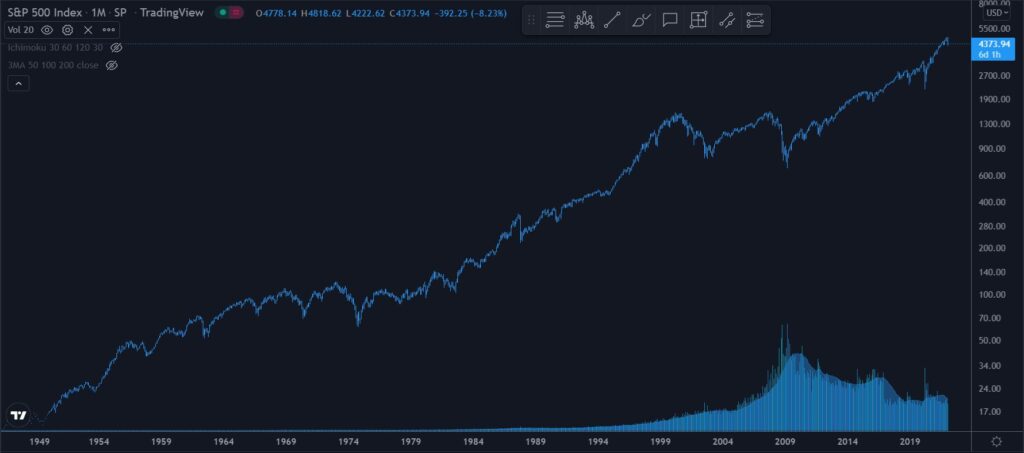HOW TO BE A SUCCESSFUL INVESTOR

Several helpful principles could assist in achieving desired portfolio results and become a successful investor
If you follow, or even at least consider, these nine investment principles, your portfolio will undoubtedly thank you:
- Invest simply
- Avoid emotive decisions
- Keep out-goings low
- Invest passively
- Invest long-term
- Appropriate risk distribution
- Diversify
- Be tax efficient
- Invest regularly
Invest Simply
Although it may seem incorrect, the most straightforward investment solutions are usually the most profitable. Don’t complicate your investment strategy unnecessarily. Invest in such a way that you can understand your own strategy without too much effort.
Even the legendary investor and billionaire – and one of the richest men on the planet – Warren Buffett, followed a simple rule when choosing investments:
He only invested in companies that he understood, and companies whose products he encountered on a daily basis – Coca-Cola, for example.
Avoid Emotive Decisions
The biggest enemies of investments are the investor’s emotions and the so-called mental limitations that are characteristic of all people.
These natural limitations include:
- Herd mentality
Subordination to mass consensus causes this and stems from the idea that a majority can’t be wrong. However, as history shows, it is one of the most dangerous forms of behaviour in finance, causing events such as bubbles, sell-outs and periods where there is fear of buying markets when they’re low, etc. Stay impartial to the market and be decisive – instead of eager to follow a ‘trend’.
- Too much self-confidence
People tend to hold themselves in high regard and feel they can handle some things better than other people. To believe the following can be naive and will result in losses: ‘I can outperform the market, even though 99% of investors who have gone before me have not’. Try to keep your ego away from any decision making events.
- Self-deception
In general, we often tend to (subliminally) choose to pay more attention to information that matches up with our own theories and opinions. Unfortunately, facts that go against our own ideas are likely to be put to ignored. This is also subconscious. Keeping as open of a mind as possible is crucial.
- Fear of loss
Numerous studies have shown that we experience a surge of serotonin when we reach a profit- causing a positive mood boost. Although, opposite to this, the same studies also show that the fear of loss is three times stronger. Because of this, many people resort to the quick sale of profitable securities and retain loss-making positions. Adopting this strategy is not appropriate investment behaviour and should be avoided.
- Mental myopia
This may be an unfamiliar term to some. Simply, it means that the small yet essential pieces of information that aren’t as obvious at first glance can be quickly forgotten or not even noticed at all.
Not only this, but current affairs and information that may signal a near-future threat tend to take precedence. Here, decisions are more short-term and can even be impulsive at times. An example of this mentality would be buying while prices are increasing and then selling when the price begins to lose momentum and reverses.
Financial studies have evidenced that a vast majority of individual investors produce lower returns than the market offers due to this series of natural behaviours.
To be successful in financial markets, you should not allow emotions to affect your investment choices. Minimise how much resolution, decision-making and intervention you undertake in periods of heightened emotion.
Keep Out-goings Low
Costs absorb a portion of your profits. The level of cost that you incur is critical to the positive or negative outcome of an investment.
If you want to invest successfully, we aren’t saying to avoid costs altogether, as this is next to impossible if you wish to progress. So, although costs are inevitable, just remember that the lower your expenses are, the higher your potential return could be.
Passive investment in the market
Passive investment would likely be the most optimal way to meet the three previous investment fundamentals successfully.
Passive investing essentially means investing regularly “buy it and forget it”. The advantage of passive investing is that it requires little to no intervention in the portfolio. So it’s more about the “buy and hold” strategy. The strategy does not seek the timing of investments or the selection of specific securities.
You can expect higher returns on passive investment due to reducing the risk of human error, as well as the minimal costs.
Increase your financial knowledge
The easiest way to make any particular investment successful is to take the profits offered by the market. There is a very low probability that you will achieve a higher yield in any other way in the case of a long-term investment.
The only caveat with this is being able to know when to take these profits. Therefore, through experience, you will learn how to best exercise patience and reason to get the most out of your investment when the time comes.
Invest Long-term
There is a saying that goes, “You walk slowly, and you will live longer” This phrase is more relevant in finance than any other aspect of life.
The key to success in investments is the interest rate. Thanks to this, the value of the investment increases faster every year.
Furthermore, the long investment horizon also reduces risk. Financial markets fluctuate from time to time, but they generally have historically moved in the same direction and have increased in the long run. The companies you invest in make billions in profits every year. This profit is always legally reversed in the company’s value (the price of shares), regardless of the market’s current mood.
Speculation is short-sighted, and no billionaire got rich because of it; they made their wealth with successful investment. The natural profitability of financial markets ranges from 8% to 10% per annum.

Logarithmic development graph of the SP500 index for the last 70 years. Average annual growth of 7.8%, with dividend reinvestment 11.34%
You can use TradingView to backtest assets.
A successful investor invests in the long term. They don’t give in to momentary worries or highs and adhere to the investment strategy. Short-term fluctuations in investment do not give rise to changes in their approach.
Appropriate Risk Distribution
To be satisfied with your investment, you need to know your relationship to risk.
The placement of financial assets means the distribution of different investment vehicles. Assets will differ in profitability and the risk associated with them. Historically, the most effective assets are shares, but their prices sometimes fluctuate more than bond prices, which offer lower but more stable profits.
The correct distribution of investments determines your future return and is an essential tool in passive investment.
There is no universally appropriate distribution. It differs for each investment and varies from investor to investor.
Invest like a professional.
There are a few different correlations between investor goals and portfolio composition when it comes to investing. The following strategies show this:
- Choose more stocks and fewer bonds if you have a longer investment outlook.
- If you want to invest most of your savings, choose more bonds.
- If you have a higher appetite for risk, choose more stocks.
Diversification, i.e. the distribution of risk
Allocation is about the composition of an investment’s specific distribution, and diversification refers to its diversity. If you buy shares of 10 major oil companies, they are your allocation, but because the same ‘niche’ is the focus of the products, the portfolio diversification is much lower here. Portfolio diversification is important from several perspectives, especially for passive investment:
Reduces the risk
At some point, you have most likely heard the old saying of not putting all of your eggs in one basket. This saying talks about the fact that all of the eggs will break and therefore be wasted if the basket falls over. This ideology is how you should approach investing. The more assets in the portfolio, the lower the portfolio’s risk (since the loss of one of them is negligible when considering you will still have the rest of your holdings), meaning diversified portfolios are more stable.
Increases yield
No one can certainly predict which asset will have the highest return from year to year and which will have the most significant loss. Every year, the winner or loser is different for each asset class. The effort to invest exclusively in the winners usually produces worse results than the market. Therefore, the choice of a wide variety of devices is the most sensible.
Conditions for passive investment
Passive investment is about investing in the market.
All securities traded on a stock exchange or in that region represents the market.
If you want to invest in the market, it would be most beneficial to build a portfolio that has a similar composition as the market. Doing this would give your portfolio a high level of diversity.
Tax-efficiency
If you want your investment to reach the highest possible income, it is necessary to reduce the tax rate as much as possible.
There are separate categories within which you can find different asset classes and investment methods, along with varying tax pay classes. There are several ways to optimise your tax payments for investments.
It is essential that, when setting up your investment strategy, you keep in mind how it will cause you to be taxed.
Invest regularly
If you don’t have a large amount of savings that you can utilise here, don’t despair. Investing monthly with smaller amounts is perfectly fine – everyone starts somewhere, and it isn’t necessary to put everything on the line to be an investor.
From the point of view of budget planning, it is easier to set aside a small amount per month than to wait for a more significant, one-time capital amount to be put together. It is better to increase the value of your money correctly from the earliest available moment instead of being a bull in a china shop.
Moreover, regular investment is also interesting in terms of risk. When buying securities, you do not have to fear every month that the market will not fall shortly after the investment. A monthly fixed amount of investment reduces risk by buying more shares (cheaper) and vice versa (more expensive). This is known as Dollar Cost Averaging, which we have mentioned in a previous article
Investing regularly is an accessible solution which means that anybody can become an investor in their own right.

